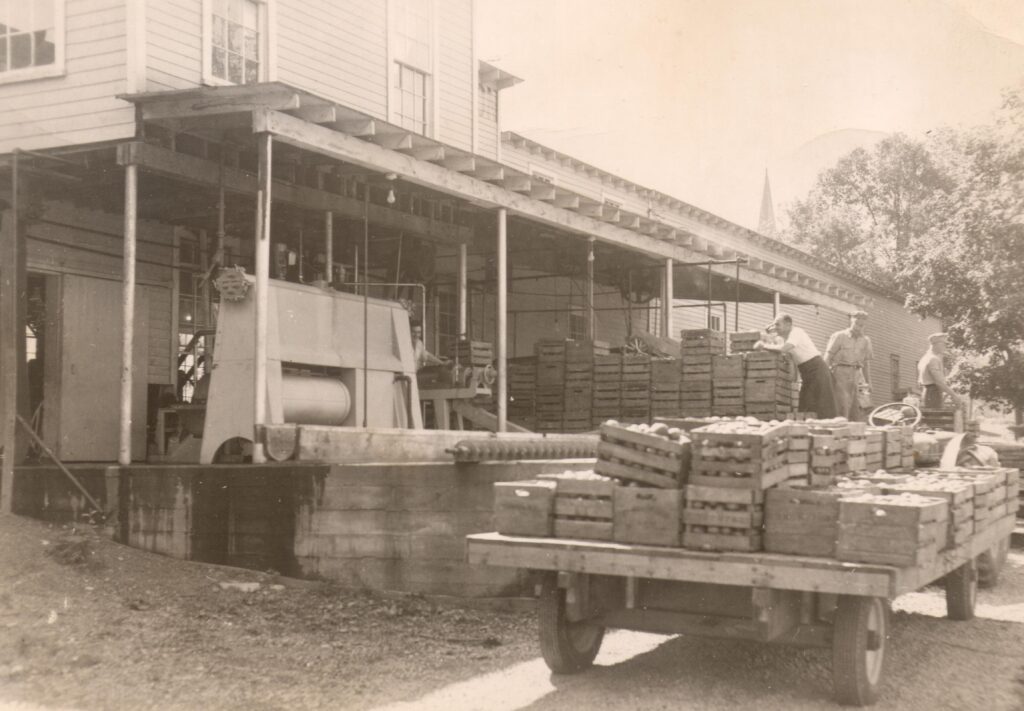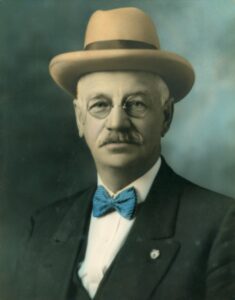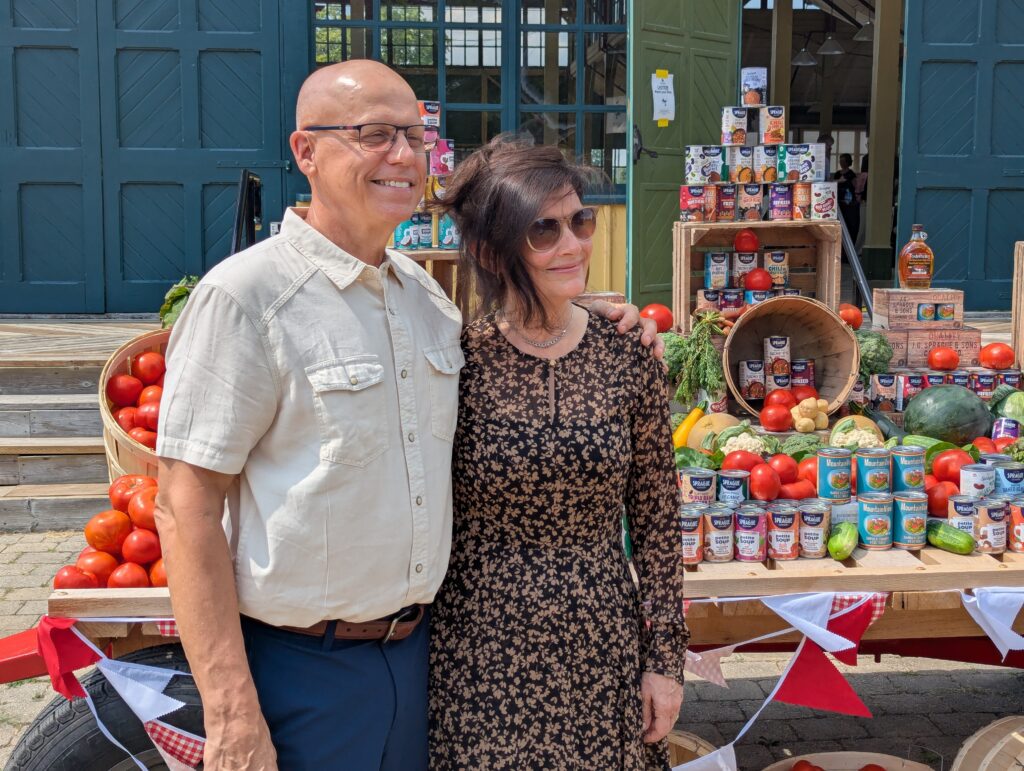
In honour of the Picton Fair this week, and nearly 200 years of County agriculture, we consider the century of Sprague Foods, the sole survivor of the County’s great era of vegetable canning.
In the spring of 1925, the Picton Gazette ran the headline: “WILL GROW BIG ACREAGE OF TOMATOES THIS YEAR.” The story: “There is no busier or more important week in the year for the grower of tomatoes for Prince Edward County canning factories than the last week in May. It is the week when nearly all the planting is done and it is an important week for the crop and profit very largely depends on the quality of the plants that the farmer sets.”

The report on the Canadian Canners farm in Wellington said there were 4,100,000 tomato plants in its greenhouse to supply growers across the County. Nearly two million more were on the way at independent factories. “Somewhere around 6,000,000 tomato plants are being grown in the county this year, enough to plant an acreage of fully 2,000 acres. If the season is favorable Prince Edward County will produce a record crop.”
The numbers may have inspired one ambitious entrepreneur to take the plunge. James Grant Sprague of Big Island had already launched several successful businesses, including the first telephone company in the County in 1898.

The Mountain View column of the July 2, 1925 Gazette is the first indication of another project: “A jolly crowd gathered at the new canning factory being built by J. G. Sprague to test the qualities of the new floor. Everyone spent a most enjoyable evening and wished Mr. Sprague every success in his new venture.” The project was well enough under way that the building could host quite a party. I’m imagining the best way to “test the qualities of the new floor” might have been to host a dance— but this is pure speculation.
The next mention is on September 3. “Mr. J. G. Sprague has his canning factory running now.”
Although its operations have since moved to Belleville, one hundred years later, the Sprague Cannery is still running. James Grant Sprague’s great-great-grandson, Rick, is in charge.
At a celebratory gathering at Picton’s Crystal Palace in August, MP Chris Malette presented a certificate of recognition to Rick and Jane Sprague. “This event kind of suited our company,” said Mr. Sprague. “We were trying to create this old picnic atmosphere in this historic, agricultural building in Picton.”
Local historian Peter Lockyer debuted a documentary film telling the story of the Sprague Cannery.
“Jane and I have always loved going to The Regent Theater,” noted Mr. Sprague nostalgically, “for one, you feel young, and what an atmosphere — that’s rare.
“And we really enjoyed those little shorts, ‘History Lives Here,’ by Peter. Peter and I have very much a shared background. As young boys we picked tomatoes for our fathers, which was the hardest, brutal job. We both have PTSD over that!”
When Rick’s father took over the factory in the 1960s, he was in his early 30s. He saw that extending the business would be crucial to its survival. He added beans, both extending the season, and appealing to the big cities, Toronto and Montreal.
In 2009, Rick, who had been working full-time in the cannery since graduating from Guelph University, took over. The company moved to Belleville to accommodate changes in production. And some new ideas.

“We initially got into organic because I wanted to go back to those heritage varieties, to those flavours. And fortunately, the growing of those, whether it’s heritage varieties or organic, is now coming more and more into Prince Edward County, so we look forward to sourcing locally now,” says Mr. Sprague.
Since 2018, the focus has shifted from packing produce to developing prepared foods. These have a dedicated following both locally, across the country and in the U.S. There are ambitions to reach further across the globe. “There’s really not a craft canner like us in North America,” he notes, with a combination of just pride and gratitude for good fortune.
International trade has been tricky since Tump’s trade war, but CUSMA has been keeping things normal for U.S. trade. Sprague is also sourcing steel cans from a new manufacturer in Quebec, which makes a big difference.
Mr. Sprague loves local life. “I miss that farming community. You’d have eighty peelers in there, and all those farmers bringing in. At the church suppers, you would tell stories and everything. That was such a beautiful part of life that kind of disappeared. And so, we’re very satisfied now with our own brand. We’re more engaged with the community, even with the retailers, with people. People now are writing us, and telling us about how they love our products, and just to have that connection again is, for me, a very significant part of my joy in doing this.”
See it in the newspaper